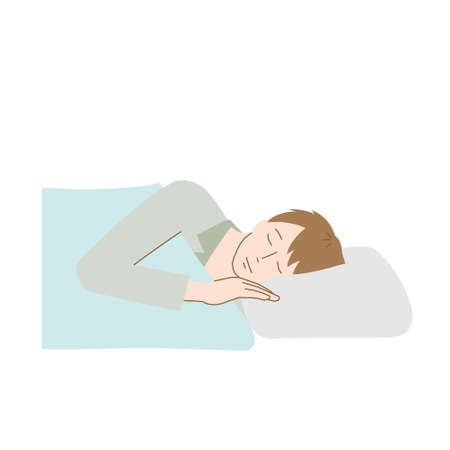Introduction to Sleep Disorders in the UK
Sleep is a cornerstone of good health, yet countless people across the UK find restful nights consistently out of reach. In British society, sleep disorders such as insomnia, sleep apnoea, and restless leg syndrome are not only prevalent but also increasingly recognised as public health concerns. Insomnia, often characterised by difficulty falling or staying asleep, affects nearly one in three adults at some stage in their lives. Sleep apnoea, where breathing repeatedly stops and starts during sleep, is thought to impact hundreds of thousands—many undiagnosed—across the country. Meanwhile, restless leg syndrome brings uncomfortable sensations and an overwhelming urge to move the legs, particularly at night, disrupting sleep for both sufferers and their partners. These issues are more than mere inconveniences; they can have profound effects on daily functioning, mental wellbeing, and long-term physical health. By understanding how widespread these disorders are within the UK population, we can better appreciate the importance of addressing them—not only for individual wellbeing but for the collective vitality of our ageing society.
2. The Relationship Between Sleep Disorders and Ageing
Understanding how sleep disorders impact the ageing process is essential, especially within the UK, where lifestyle and healthcare factors play unique roles. Disturbed sleep has been shown to accelerate age-related changes, affecting both physical and cognitive health as well as emotional wellbeing. In Britain, common sleep disorders such as insomnia, sleep apnoea, and restless legs syndrome are frequently reported among older adults. These conditions can disrupt the bodys restorative processes that occur during deep sleep stages, which are critical for cellular repair, memory consolidation, and mood regulation.
Physical Health Implications
Chronic sleep deprivation or fragmented sleep increases the risk of developing cardiovascular diseases, type 2 diabetes, and a weakened immune system—conditions particularly prevalent in the UKs ageing population. Furthermore, poor-quality sleep contributes to reduced mobility and a greater likelihood of falls, which is a significant concern for elderly Britons living independently or in care homes.
Cognitive Decline
Lack of restful sleep has a marked effect on cognitive functions such as attention, memory retention, and decision-making. Recent studies in the UK have linked persistent sleep disturbances to an increased risk of dementia and Alzheimers disease. Cognitive decline not only affects personal independence but also puts additional pressure on families and the NHS.
Mental Wellbeing
Sleep disorders are closely tied to mental health concerns like anxiety and depression. In a British context, the gloomy weather and long winters can exacerbate these feelings, making quality sleep even more vital for maintaining a positive outlook in later life. Persistent tiredness often leads to social withdrawal, increasing loneliness—a growing issue amongst older adults across the country.
Summary Table: Effects of Sleep Disorders on Ageing in the UK
| Aspect | Negative Effects of Poor Sleep |
|---|---|
| Physical Health | Higher risk of heart disease, diabetes, reduced mobility |
| Cognitive Function | Memory loss, difficulty concentrating, increased dementia risk |
| Mental Wellbeing | Anxiety, depression, social isolation |
Your Wellbeing Matters
If you or someone you know is experiencing persistent sleep issues, remember that recognising the problem is the first step toward better health. In the next sections, we will explore practical approaches tailored to British lifestyles that can help mitigate these challenges and promote healthy ageing.

3. Social and Economic Impacts in the UK
Unaddressed sleep disorders in the UK extend far beyond the individual, casting a wide net of challenges across society. At home, families often bear the emotional burden when a loved one struggles with persistent sleep issues—tensions can rise, relationships may suffer, and daily routines are frequently disrupted. This ripple effect touches every generation, but it can be especially hard on those caring for ageing relatives whose health is already vulnerable.
The strain on the NHS is also significant. Sleep disorders contribute to increased GP visits, longer hospital stays, and higher demand for specialist care. In a country where resources are precious and waiting lists are long, this added pressure can slow access to treatment for everyone. Moreover, untreated sleep problems are linked to chronic conditions like diabetes and heart disease, which further stretch NHS budgets and staff capacity.
Workplace productivity across the UK does not escape unscathed either. Employees suffering from poor sleep are more likely to experience absenteeism, reduced concentration, and accidents on the job. The cumulative economic cost is substantial—lost hours, diminished morale, and increased turnover all impact businesses from bustling city offices to local shops on the high street. Recognising these broader effects is essential if we hope to encourage early intervention and foster a healthier, more resilient society.
4. Current Trends and Barriers to Sleep Health in the UK
Understanding sleep disorders in the UK requires a close look at the unique cultural beliefs, healthcare systems, and lifestyle factors that shape British attitudes towards sleep. These elements not only influence the prevalence of sleep issues but also impact how individuals seek help and manage their sleep health.
Cultural Beliefs Shaping Sleep Patterns
The traditional “stiff upper lip” attitude often encourages people to persevere through difficulties rather than openly address personal health concerns, including sleep problems. Many Britons may view poor sleep as a minor inconvenience rather than a significant health issue, leading to underreporting and delayed intervention. Additionally, the British penchant for late-night socialising, whether at the pub or during extended family gatherings, can disrupt regular sleep routines.
Healthcare Access and Challenges
The NHS provides universal healthcare access; however, waiting times for specialist referrals—such as to a sleep clinic—can be considerable. Many primary care practitioners are pressed for time and may prioritise more acute conditions over chronic sleep disturbances. This barrier can delay diagnosis and effective treatment of sleep disorders.
| Barrier | Description | Impact on Sleep Health |
|---|---|---|
| Long NHS wait times | Referral processes and limited specialist availability | Delayed diagnosis & management of sleep disorders |
| Cultural minimisation | Tendency to downplay personal health struggles | Lack of early intervention or support-seeking behaviour |
| Lifestyle choices | Shift work, irregular hours, late-night activities | Inconsistent or inadequate sleep patterns |
| Urban living stressors | Noisy environments, light pollution in cities like London or Manchester | Poorer quality of rest and increased prevalence of insomnia symptoms |
Lifestyle Factors Distinct to British Society
Many adults in the UK juggle demanding jobs with long commutes, contributing to chronic tiredness. The rise of digital technology has also led to increased screen time before bed—a trend particularly prominent among young professionals in urban areas. This disrupts melatonin production and hinders restful sleep. Furthermore, while tea is considered a comforting staple across Britain, high caffeine consumption throughout the day can interfere with natural sleep cycles.
Addressing Stigma and Raising Awareness
Encouraging open dialogue about mental health—including sleep—is gradually becoming more accepted across the UK. National campaigns by organisations such as The Sleep Charity aim to educate the public on recognising when poor sleep warrants medical attention and how lifestyle adjustments can make a tangible difference. However, overcoming longstanding cultural stigmas remains an ongoing challenge.
5. Effective Approaches to Addressing Sleep Disorders
Practical Steps for Better Sleep
Tackling sleep disorders in the UK requires a blend of practical action and reliable support. The first step is to recognise the signs—persistent fatigue, mood changes, or difficulty concentrating—and consult your GP if sleep issues persist. The NHS provides clear treatment pathways, starting with thorough assessments and, where appropriate, referrals to specialist sleep clinics. For many, simply adjusting daily routines can make a significant difference.
Preventative Strategies: Building Good Sleep Habits
Prevention is often more effective than cure. Adopting consistent sleep schedules—going to bed and waking up at the same time each day—can regulate your body’s internal clock. Limiting caffeine intake in the afternoon, reducing screen time before bed, and ensuring your bedroom is quiet and comfortable are all proven strategies. These habits, sometimes called ‘sleep hygiene’, form the foundation of healthy rest and resilience against ageing-related sleep decline.
Key Resources Available in the UK
The NHS offers a wealth of resources, from online self-help guides like “Every Mind Matters” to cognitive behavioural therapy (CBT) for insomnia, which is available both digitally and face-to-face in many areas. Local pharmacies often provide over-the-counter remedies and advice tailored to your needs. For those seeking community support, organisations such as The Sleep Charity offer helplines, workshops and peer support groups across the country.
Community Support and Peer Networks
Don’t underestimate the power of community when facing sleep challenges. Support groups—both local and online—create safe spaces to share experiences and practical tips. Many find comfort and motivation by connecting with others who understand their struggles, which can be particularly reassuring for older adults navigating age-related sleep changes.
By embracing these steps and utilising trusted resources, you can regain control of your sleep health and support healthy ageing. Remember: help is readily available throughout the UK, so never hesitate to reach out for guidance on your journey to better sleep.
6. Promoting Healthy Sleep Across the Lifespan
When it comes to overcoming sleep disorders in the UK, a truly effective approach recognises that sleep is not just an individual concern but a collective one. Encouraging multi-generational strategies means families, employers, and communities each have an important role to play in fostering environments where restful nights are possible for all ages.
Families: Building Supportive Home Habits
Good sleep often starts at home. Families can work together to create calm, tech-free bedtime routines, whether that’s reading together before bed or ensuring everyone’s bedroom is dark and quiet. Open conversations about sleep problems—across generations—help normalise seeking support and reduce stigma, especially for older relatives who may feel embarrassed by new or worsening sleep issues.
Employers: Cultivating Rest-Friendly Workplaces
With many adults spending much of their week at work, employers have a powerful opportunity to promote healthy sleep. Flexible hours, encouragement of regular breaks, and education on the dangers of ‘presenteeism’ can go a long way. By acknowledging that good rest boosts productivity and wellbeing, British workplaces can lead the way in supporting employees’ sleep health—regardless of their age.
Communities: Nurturing Collective Wellbeing
Local communities across the UK can foster environments that make healthy sleep more accessible. This might include running workshops on relaxation techniques at community centres, promoting safe and quiet neighbourhoods after dark, or simply encouraging social connections that combat loneliness—a known risk factor for poor sleep among older adults.
Together Towards Restful Nights
No matter our age, we all benefit from understanding and respecting the power of good sleep. By working together—within families, workplaces, and communities—we can break down barriers to restful nights and protect both our mental sharpness and physical vitality as we age. Let’s champion better sleep habits for every generation: because a well-rested nation is a healthier, happier one.
7. Conclusion: The Importance of Prioritising Sleep in Ageing Well
In summary, sleep disorders represent a significant yet often overlooked challenge for healthy ageing in the UK. As we have explored, poor sleep quality and untreated sleep issues can accelerate physical decline, increase vulnerability to chronic illnesses, and negatively impact mental health in older adults. The evidence is clear: prioritising good sleep habits is not just about feeling refreshed—it is fundamental to maintaining independence, cognitive sharpness, and overall wellbeing as we age.
At an individual level, recognising the signs of sleep disturbances and seeking timely support are crucial steps towards reclaiming restful nights. Whether it’s adopting a consistent bedtime routine, addressing lifestyle factors such as diet and exercise, or consulting a healthcare professional about possible underlying conditions, everyone has the power to make positive changes. Remember, investing in your sleep is an act of self-care that pays dividends for years to come.
On a broader scale, there is a collective responsibility for communities, healthcare providers, and policymakers across the UK to raise awareness of the importance of sleep in later life. By destigmatising conversations around sleep difficulties and ensuring access to appropriate resources and support services, we can help create an environment where healthy ageing is truly attainable for all.
Ultimately, making sleep a national health priority will not only improve individual lives but also strengthen society as a whole. Let us all take inspiration from this knowledge and commit—both personally and collectively—to championing better sleep for better ageing. Your future self will thank you.


